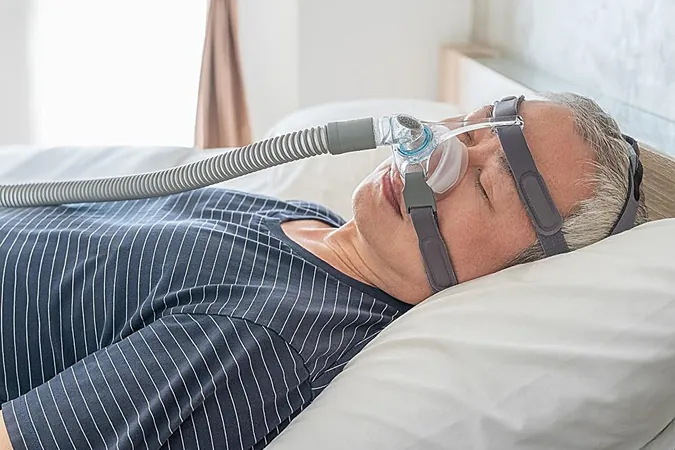
Groundbreaking Study Reveals PAP Therapy Can Save Lives: A Closer Look at the Impact on Cardiovascular Health
2024-09-17
Author: John Tan
Introduction
In a remarkable finding that could transform the lives of older adults suffering from obstructive sleep apnea (OSA), a study published on September 11 in JAMA Network Open has unveiled a strong link between the use of Positive Airway Pressure (PAP) therapy and a significant reduction in all-cause mortality as well as major adverse cardiovascular events (MACE).
Study Details
Conducted by a team led by Diego R. Mazzotti, Ph.D., from the University of Kansas Medical Center, the research analyzed data from a staggering 888,835 Medicare beneficiaries over a span of nearly a decade (2011 to 2020). This study included participants who had at least two claims associated with OSA, offering a comprehensive view of the condition's effects on mortality and cardiovascular health.
Key Findings
The findings are compelling: individuals who initiated PAP therapy—representing 32.6% of those studied—showed a remarkable decrease in overall mortality risk, with a hazard ratio of 0.53, meaning that these individuals were more than 47% less likely to die from any cause compared to those who did not use PAP. Additionally, the incidence of MACE was reduced by 10% among PAP users, highlighted by a hazard ratio of 0.90.
Frequency of Use
What’s more, the study indicated a progressive relationship between the frequency of PAP use and health outcomes. As the amount of annual PAP claims increased, so did the observed reductions in both mortality and cardiovascular events—a clear call for more consistent monitoring and treatment adherence among patients.
Future Implications
These groundbreaking results could pave the way for future clinical trials aimed at elucidating the critical role of sleep apnea therapies in reducing cardiovascular risks and mortality among the aging population. Given the growing prevalence of OSA in older adults, healthcare providers now have an auspicious opportunity to enhance patient outcomes through the encouragement of PAP therapy.
Innovative Solutions
Moreover, while one of the authors mentioned his affiliation with the startup Hypnoscure, further investigation into the potential for innovative solutions in treating sleep apnea may also play a crucial role in tackling this pressing health issue.
Conclusion
The implications of this research could resonate widely, prompting healthcare professionals and patients alike to prioritize effective sleep apnea management as not just a lifestyle choice but a vital component of cardiovascular health. Stay tuned as we continue to uncover more insight into the intersection of sleep disorders and chronic diseases!



 Brasil (PT)
Brasil (PT)
 Canada (EN)
Canada (EN)
 Chile (ES)
Chile (ES)
 España (ES)
España (ES)
 France (FR)
France (FR)
 Hong Kong (EN)
Hong Kong (EN)
 Italia (IT)
Italia (IT)
 日本 (JA)
日本 (JA)
 Magyarország (HU)
Magyarország (HU)
 Norge (NO)
Norge (NO)
 Polska (PL)
Polska (PL)
 Schweiz (DE)
Schweiz (DE)
 Singapore (EN)
Singapore (EN)
 Sverige (SV)
Sverige (SV)
 Suomi (FI)
Suomi (FI)
 Türkiye (TR)
Türkiye (TR)